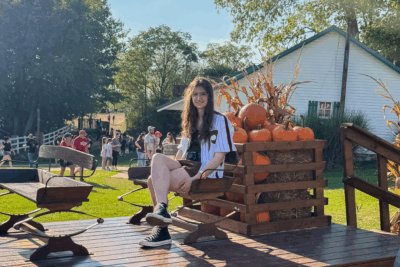Crime rates in the city of Goshen are increasing, according to Brian Guetig, GC’s new security director. And since Goshen College has “a very open campus” says Guetig, anything that does happen outside the campus seems to migrate onto it.
So far this school year, four bikes have been reported stolen, two of which had been locked. This number is higher than usual on Goshen’s campus, though Guetig notes that upon “reviewing the statistical information, it seems that there are heavy bike thefts at the beginning of a school year and that it eventually tapers off as time goes by.”
According to the city of Goshen’s Assistant Chief of Police Jose D. Miller, this increase happens annually because “each year [city] residents are aware of students' arrival back in the area; this would include persons looking for an opportunity to indulge in illegal activity at the students' expense.”
In addition to bike theft, two break-ins have happened on or around the Goshen campus within the past 60 days. The most recent break-in occurred at an off-campus student residence known as Roof House, located on 8th Street. In the week prior to the beginning of classes, senior Irene Schmid, who had been sleeping on a couch in the house’s front room with the door unlocked, woke up at 4 a.m. “to a noise and a person [who] was standing there with a flashlight.” Schmid did not see the intruder’s face, nor did the intruder linger after encountering her.
Though no one was physically harmed in this incident, Schmid noted that the experience gave her “a healthy realization of what a privilege safety is and how I take it for granted.”
Assistant Resident Director Neal Friesen also experienced a break-in this summer. On the evening of July 29, Friesen left his apartment, located next to the game room in the residence halls, to spend the evening at a friend’s home.
While he was gone, one or more individuals gained entry to the building and stole a variety of Friesen’s personal possessions, including several valuable electronic items. Friesen says that it is unclear how the intruders got into the building given that “all the doors were supposed to be locked,” and yet, “the security guard didn’t see any signs of forced entry.”
The intruders also took several temporary ID cards from Friesen’s desk, which allow entrance into several of the residence hall floors. Security records show when and where each card was scanned, revealing, that the intruders “were in the building for more than four hours.”
After Friesen contacted the police and campus security, the access for these ID cards was cut off. The intruders did continue to try the cards on various doors throughout the campus in the weeks following this incident.
As Friesen reflects on the break-in and his subsequent anger, he says, “I want our community to trust one another.” And yet, he continues, “the reality of it is that sometimes things happen, even here.”
Guetig also offered several ideas about how students might protect themselves from crime. For starters, he says, students need to purchase steel bike locks and register their bikes at the Physical Plant if they want to get them back after they’ve been stolen. Phys Plant facilitates the registration, but Guetig notes “It’s all turned over to the Goshen City Police Department and aids them in their ability to return recovered bikes.”
As for preventing break-ins, Guetig says that the only real prevention is to lock your doors. Key cards don’t make individual rooms secure, and off-campus houses don’t have key card protection. “The big thing is to make sure that we secure our rooms and our belongings,” Guetig says. He also says that in order “to properly control the situation, [incidents] need to be reported to security so that we can have a proper understanding of trends on campus.”
Jose Miller adds that “most property thefts are crimes of opportunity, unlocked bicycles and vehicles and unattended bags are easy targets for any would-be thief.” To prevent such crimes, Miller suggests that students “always report any suspicious activity to the police,” so that GCPD “can provide extra patrols to areas of increased criminal activity.”

